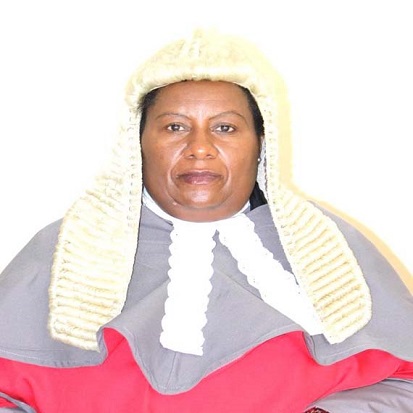HARARE – President Emmerson Mnangagwa will name his foreign minister’s High Court-judge-wife as the next head of the reconstituted Zimbabwe Anti-Corruption Commission (ZACC), risking the impartiality of the body.
Loice Matanda-Moyo joined the High Court in 2013 after serving as the president of the Labour Court and director of public prosecutions in the Attorney General’s office.
She is married to Foreign Affairs Minister Sibusiso Moyo, a retired army general who played a key role in a coup that ousted former President Robert Mugabe in 2017 before installing Mnangagwa in his place.
Mnangagwa indicated his choice of the ZACC chairperson, which the Constitution empowers him to appoint, in a letter to Parliament, the Zimbabwe Independent reported on Friday citing sources from the ministry of justice.
Mnangagwa dissolved the previous anti-graft body chaired by Harare lawyer Job Whabira in January this year following claims of ineffectiveness and corruption by its commissioners.
Parliament is expected to shortly conduct public interviews to select new ZACC commissioners, who will be drawn from a list of 133 nominees. MPs will send a shortlist of 12 to Mnangagwa from which he will pick the eight commissioners.
Mnangagwa’s decision had left the parliamentary committee on standing rules and orders “sharply divided after some of the members argued that she was not the most suitable candidate because she is married to the foreign affairs minister,” the Independent reported.
The report said the committee met on Tuesday last week to debate the issue, and MDC MPs “raised serious questions about her impartiality”.
The Speaker Jacob Mudenda, who read Mnangagwa’s letter to the MPs, ordered a quick vote by members of the committee which is dominated by Zanu PF and Matanda-Moyo was approved.
“The reason for Mudenda’s stance was that he had been given the instruction to ensure that she is approved immediately. MDC MPs abstained from the vote, but Zanu PF MPs went ahead and unanimously approved of her,” an MP was quoted as saying.
Clerk of Parliament Kennedy Chokuda and Mudenda declined to comment.
“Communication between the president and parliament is strictly confidential, therefore I can’t comment on that letter. We’re not allowed to discuss correspondence between the president and parliament,” Chokuda said.
Mudenda charged: “Why don’t you talk to your sources on that matter? I am not going to talk about it, so talk to your sources.”
















